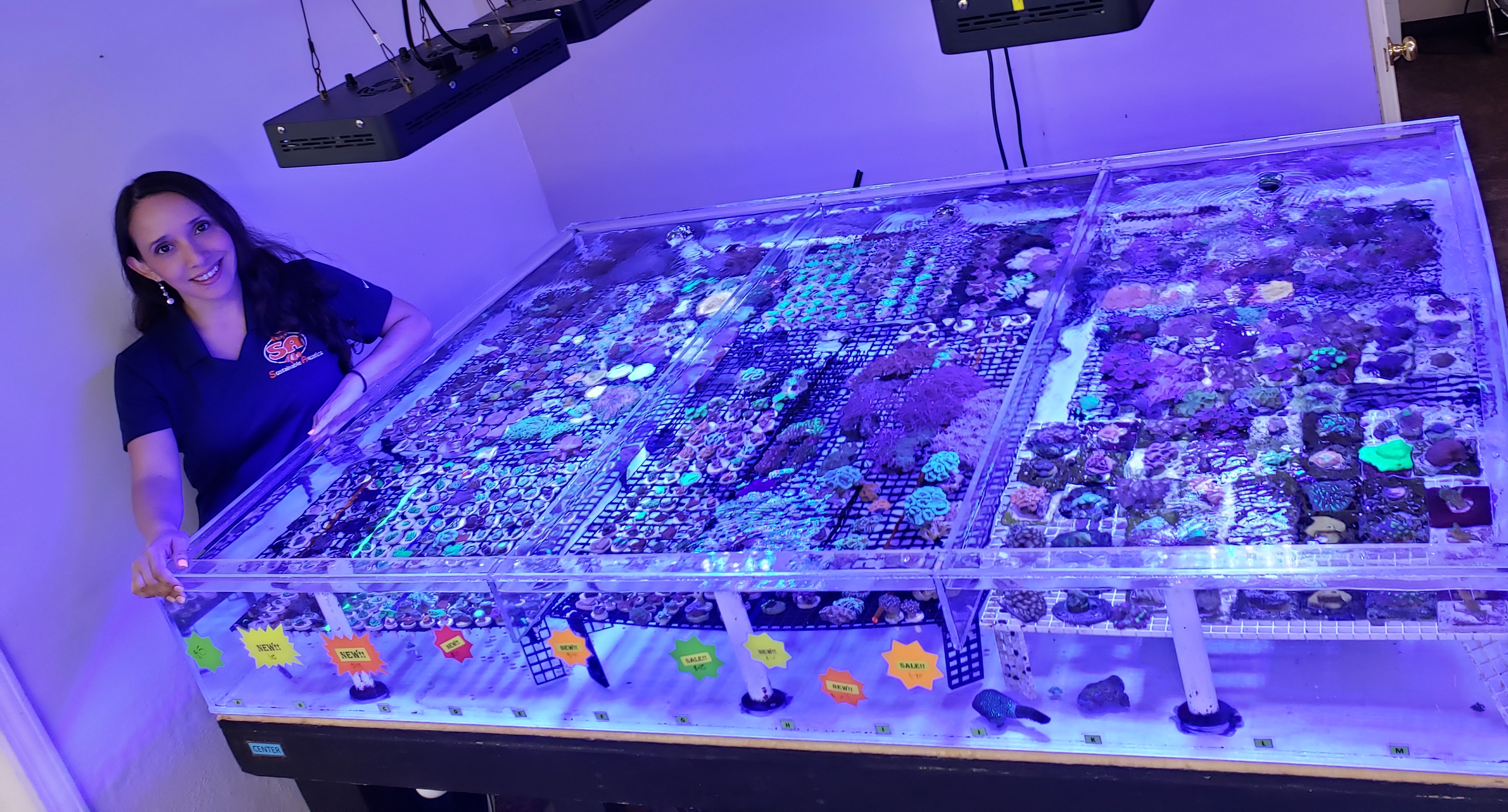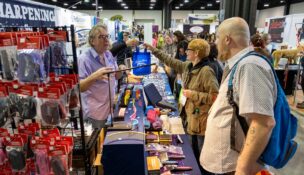Coral Reef Emphasizes Customer Service
Glenn Polyn //October 23, 2019//
Pet Age recently spoke to Amy Cole, manager of The Coral Reef, an aquarium retail store in Jefferson City, Tennessee.
Q Why did Sustainable Aquatics acquire The Coral Reef in 2009?
A Sustainable Aquatics (SA) was established in 2006 as a marine ornamental hatchery catering to independent retail aquarium shops. It was appreciated early on the importance of understanding the challenges facing our independent retail partners if we wanted to serve them better. In January 2009, SA purchased an established retail shop in nearby Knoxville, Tennessee, called The Coral Reef, allowing its previous owner to focus on his maintenance business full-time. Since joining in February 2010, I have been following a philosophy for the operation of The Coral Reef that we have come to call The Three E’s:
- Entertain: Enthusiastically greet guests (by name if possible) and make them feel welcome in the shop. If appropriate, show them something interesting or unusual or share industry or SA news that they may find exciting. Speak with guests about their dream aquarium and what it looks like to them.
- Educate: As guests become interested, use the opportunity to share information about animal biology, husbandry, feeding, geography (where the organisms come from), water chemistry or other lessons appropriate for the individual and their unique challenges in setting up their dream aquarium.
- Engage: Assist guests with picking out livestock, equipment, feeds or other items necessary for their aquarium. Engage by asking questions, listening and making helpful suggestions on choices. Make lists of customer requests and contact customers when special-request items or animals arrive to the shop.
Q What are the biggest aquatic trends that you’ve noticed over the past 10 years?
A Over the past 10 years, there have been significant changes in the hobby and industry spurred by technology, advancement of our understanding of the care requirements of sensitive aquatic life and of course consumer preferences.
I have seen an increase in the awareness and perceived importance of sustainable sourcing of organisms (both from an ecology and animal health perspective). This means that we need to be transparent about the provenance of our livestock.
Hobbyists and professional aquarists alike have put increased emphasis on proper nutrition for their aquariums. Using SA’s Hatchery Diet products has allowed me to keep many delicate species and to suggest feeds for customers looking to keep their pets healthy.
The “name game” of specific varieties of corals and fish (especially zoanthids and designer clownfish, for instance), has kept me on my toes! It is necessary to be able to communicate with clients about the incredible diversity within our hobby.
Several different manufacturers have developed and offered “all-in-one” aquarium kits. These have given new hobbyists more confidence and experienced hobbyists a stylish option for an additional aquarium!
LED lighting has made keeping corals in aquariums more accessible. There are many options for lighting reef aquariums that are capable and affordable.
The largest change we have seen is how customers shop: There has been a significant shift to e-commerce with online vendors.
Q What coral species are currently the most in-demand frags, and what brands are making the most popular fragging kits?
A “Frags” or fragments of corals, typically glued to a substrate or “plug,” have become popular with reef aquarists as a way of sharing and trading corals. I have maintained a large inventory of frags at The Coral Reef that clients can study and pick from. Aquacultured corals have been the most popular, especially well-known strains and fashionable named corals. Encrusting corals, LPS (Large-Polyp Stony) corals and polyps such as zoanthids and mushrooms have been top sellers for us. There is definitely a culture of trading corals amongst hobbyists, especially the SPS (Small-Polyp Stony) corals. The Coral Reef participates by purchasing frags from local hobbyists.
Q Which freshwater livestock and products are most requested from your customers?
A The Coral Reef sells freshwater livestock alongside our saltwater offerings. New hobbyists frequently visit our shop to explore the idea of keeping an aquarium. Often there are young children curious about the fish and the hobby. Offering freshwater is a great way to start and develop a relationship with customers who might be nervous to start a saltwater aquarium. Bettas, livebearers and other hardy fish are popular with beginners, although we have interest in cichlids and planted tanks as well. As with the corals, some hobbyists are breeding freshwater fish and plants, and The Coral Reef is happy to trade with them. My shop offers sound advice and conversation about the hobby that may not be found at larger all-in-one retailers.
Q How would you describe The Coral Reef’s online presence?
A After moving the store to Jefferson City, Tennessee, to be closer to SA’s main campus in June 2015, the shop expanded its offerings and established an online presence to reach clients that aren’t within driving distance of our physical location. The goal was to create a personalized experience for online customers as well as our walk-in clients. WYSIWYG (What You See Is What You Get) offerings have been an important part of our online offerings, as this allows clients to see the specific fish or coral that they are purchasing.
One of the great advantages I have at The Coral Reef is full access to the inventory at the SA hatchery, which includes hundreds of thousands of fish, thousands of corals and a full inventory of live and prepared feeds—all a few hundred meters from the shop.
Although there’s no substitute for an in-person visit to see me and my crew at The Coral Reef, I try to make sure that our online customers have a positive experience each time they shop with us.



















